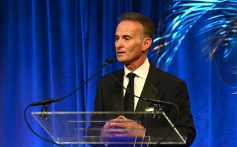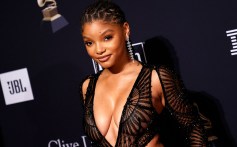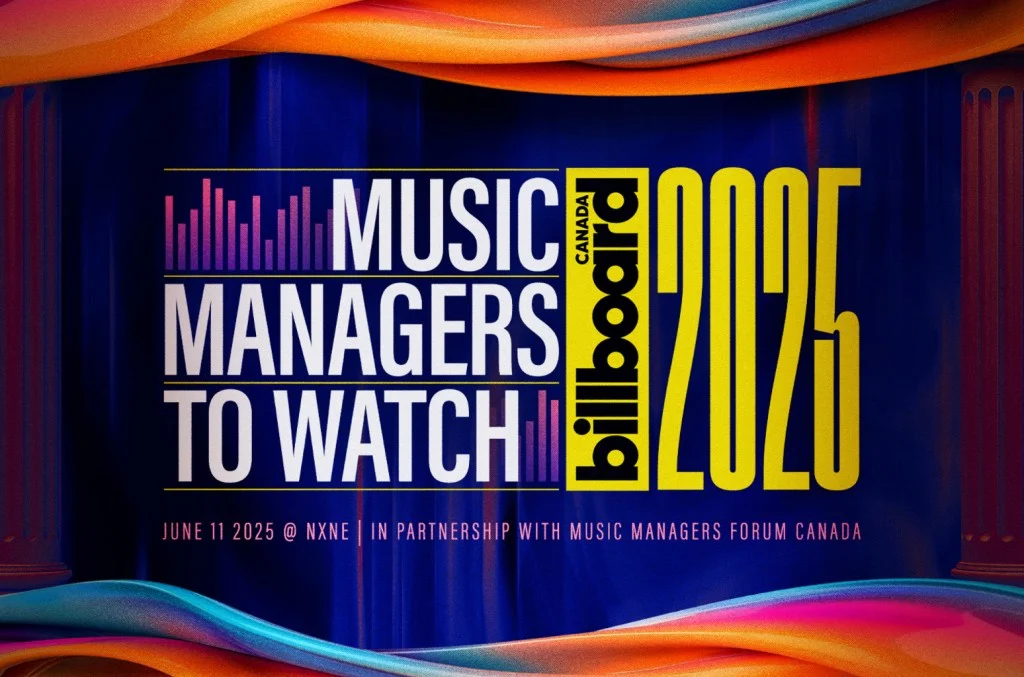Business News
Page: 9
Trending on Billboard
For years, the Middle East has been regarded as the next hot music market – for talent, streaming and even the live business. But few countries there have modern collective management organizations that can take in and pay out royalties for performing rights or mechanical rights on the publishing side, or neighboring rights when recordings are used on radio or television or in bars or restaurants. On Oct. 23, the start-up Music Nation, which has a partnership with BMI, will begin collecting for those rights in the United Arab Emirates, which includes Dubai and Abu Dhabi – and it will not be the only player in the market.
Related
The UAE’s 2021 update of copyright law established public performance and neighboring rights in the country. Since then, the UAE has given permits to two collection organizations: Music Nation and the Emirates Music Rights Association (EMRA), which has the backing of some foreign societies, including SACEM, and plans to operate as a nonprofit. (A third company has been collecting royalties for several years.) Music Nation, which is technically a Rights Management Entity (RME), is a private company. It has a partnership with BMI, which gives it access to important U.S. repertoire, and it has a deal with SoundExchange to provide neighboring rights administration, so it can license both publishing and neighboring rights for the use of recordings.
“With Music Nation’s technology and a leadership team that understands both the UAE’s cultural fabric and global music operations, we’re delivering a simple, transparent and modern licensing solution that easily licenses businesses and quickly pays creators,” said Music Nation founder and chairwoman Rasha Khalifa Al Mubarak.
The executive team includes CEO Amer M. Samhoun, COO James K. Petrie and chief creative officer Ali Dee.
Rasha Khalifa Al Mubarak
The launch of Music Nation is the first international partnership of its kind for BMI, after that organization shifted to operating as a for-profit company backed by private equity.
It also represents the opening of a potentially important new market, since the UAE has said it is making the music business and the creative industries an economic priority, and Saudi Arabia is moving in the same direction. The markets are different, however. Foreigners make up about 88% of the population in the UAE, with significant numbers coming from elsewhere in the Middle East, the U.S. and Europe, India and the Philippines. Anglo-American songs and recordings are said to be popular, which means that the country could generate significant royalties for ASCAP, BMI and the UK CMO PRS for Music.
There will be competition, however. As a nonprofit in the traditional European model, EMRA has been championed by SACEM. Since 2020, the UAE has also had another RME, ESMAA, a subsidiary of PopArabia, which is majority-owned by Reservoir Media and run by Hussain Yoosuf, who goes by the nickname “Spek.” Although ESMAA does not have a permit to operate as a collective management organization under the UAE copyright law, it has an Abu Dhabi business license for rights management that allows it to collect and distribute royalties. Right now, it also has more reciprocal agreements in place than its competitors, including with PRS, GEMA (the German CMO) and STIM (Sweden).
Both Music Nation and EMRA will presumably pursue deals with those entities, as well as others, and the market could get very competitive.
Trending on Billboard Another day, another flood of music industry deals. How does one keep track? In an effort to provide an overview of the latest acquisitions, mergers, joint ventures, licensing agreements and more, Billboard publishes a list of all of the latest pacts that have hit our radar every other Thursday. Legacy management and […]
Trending on Billboard
KiTbetter, the South Korean company behind the KiTalbum hybrid physical-digital format, is opening a manufacturing facility in Los Angeles to better reach consumers in the U.S. The first KiTalbums produced in the U.S. are expected to reach retail and fans in early 2026.
“As we expand globally, and with growing interest from artists, labels, and retailers across North America and Europe in particular, we’re increasing capacity to support more titles and meet rising international demand,” says Jennifer Sullivan, president, North America and chief marketing officer.
Related
The KiTalbum is a proprietary format that includes a physical album stored in a jewel case and a small “KiT” device that uses a U-NFC (ultrasonic near-field communication) signal to unlock music, videos, lyrics and album credits on the KiTalbum app for iOS and Android devices. The square-shaped jewel box typically contains printed materials such as stickers and cards.
A relative unknown in the U.S., the KiTalbum format is best known in the company’s home country. Not only are KiTalbum’s original manufacturing facility and offices in Korea, but the company also launched a flagship retail store in the country. Sullivan says that since 2017, KiTbetter has produced 10 million KiTalbums, with K-pop titles being the best-selling.
But now, the company is targeting a wider range of genres and artists in North America and Europe. “We’re seeing strong international demand that continues to drive the need for additional production capacity,” adds Sullivan. Having a facility in Los Angeles will cut down on the turnaround time compared to shipping products from South Korea.
In recent years, KiTbetter has released titles on metal label Earache Records (Napalm Death and Carcass, for example) and Rhino Records (Alanis Morissette’s Jagged Little Pill and B-52s’ Cosmic Thing, among others). Rap icons Public Enemy released a KiTalbum version of its latest album, Black Sky Over the Projects: Apartments 2025. Metal greats Megadeth will offer a KiTalbum version of its final album that’s due out in January.
Related
KiTalbums typically come with exclusive or bonus content. The upcoming reissue of Devo’s 1980 album Freedom of Choice, for example, includes cover versions of the band’s hit song “Whip It” by the bands Teen Mortgage! and Scowl. Stone Temple Pilots’ Purple comes with seven music videos and acoustic sessions for “Big Empty” and “Pretty Penny.”
Independent artists can also create KiTalbums for their releases through the KiTbetter self-service website. Sullivan says prices start around $9 apiece and drop to about $7 per unit for orders of 300 units. Artists can sell their KiTalbums in the KiTbetter shop or through their own online stores. “A lot of artists like to have product on hand at shows,” says Sullivan.
KiTbetter isn’t the first company to attempt to enhance digital content. Yoto sells Yoto Cards, credit card-sized pieces of plastic, that are inserted into a screen-free audio player for children. Weverse, the social media platform owned by K-pop giant HYBE, offers Weverse Albums that include digital photo cards and animated album covers. Going further back in time, record labels embraced enhanced CDs in the 2000s to help combat falling album sales. Enhanced CDs added data to an audio CD and frequently included videos, wallpapers and links to web pages.
While the KiTalbum remains a niche product in the U.S., KiTbetter’s expansion corresponds with the music industry’s increased interest in collectibles and selling physical items to superfans. With streaming dominating music consumption, perhaps the KiTalbum will become an intriguing option for fans who prefer digital music but want a tangible item.
Trending on Billboard
Luke Combs and Opry Entertainment Group (OEG) will bring a new Category 10 entertainment venue to the Flamingo Las Vegas next fall. Inspired by Combs’s chart-topping 2017 hit “Hurricane,” the Category 10 brand’s flagship venue opened in Nashville in late 2024.
The three-story venue will feature Hurricane Hall, a main dining hall that will include three bars, a central stage and dance floor, as well as state-of-the-art video, acoustics and lighting. Hurricane Hall will offer curated artist lineups daily and host the brand’s free line dancing lessons. The second floor will include The Still, inspired by Combs’s songwriting talents, which will offer a more intimate area with a view of the stage, as well as an extensive collection of bourbons hand-selected by Combs. The Still will also have an adjacent outdoor patio space.
Related
The third level will hold The Eye Rooftop, a covered rooftop space featuring a DJ booth, dance floor and bar with views of the Las Vegas Strip. The venue will also feature the Beautiful Crazy Women’s Lounge, located inside the women’s restroom on the first floor, which will offer a champagne bar, makeup counters, soft seating and Hollywood vanity mirrors.
Combs said in a statement, “I am stoked about having a second Category 10 location in Las Vegas. 2026 was already going to be an awesome year, but this takes it to the next level. I can’t wait for Bootleggers to have their own place to party on The Strip.”
Combs is set to headline more than 20 dates in Europe and North America next year on his My Kinda Saturday Night stadium tour. He was recently named the highest RIAA-certified country artist in history, with more than 168 million units sold.
Related
“With Luke’s enormous international appeal, securing the right Las Vegas location for Category 10 has been a priority since we first announced the partnership back in 2023,” Colin Reed, executive chairman of OEG parent company Ryman Hospitality Properties, said in a statement. “The United Kingdom ranks as the leading market for international visitors to Las Vegas outside North America. Combined with the UK’s continued embrace of country music and Luke, this is an ideal moment to bring Category 10 to one of the world’s great entertainment playgrounds.”
Reed continued, “We have formed a wonderful relationship with Caesars Entertainment through our Ole Red Las Vegas location, and we look forward to bringing more country music experiences to the market.”
“The addition of Category 10 continues to build on the momentum of a tremendous year transforming Flamingo Las Vegas,” added Dan Walsh, senior vp and general manager of the resort. “With exciting new experiences like the Go Pool, Pinky’s by Vanderpump, Gordon Ramsay Burger and Havana 1957, we’ve brought a whole new level of energy to our iconic resort. Category 10 elevates that energy even further, bringing one of the biggest names in music to the Flamingo and offering live performances with great food and cocktails at the best location on The Strip.”

Trending on Billboard
More than 550 entertainment industry leaders gathered in Los Angeles on Sunday (Oct. 19) for Creative Community for Peace’s (CCFP) seventh annual Ambassadors of Peace gala to promote dialogue and unity through the arts. The event was held at the Beverly Park residence of Haim Saban, chairman and CEO of Saban Capital Group.
This year’s honorees were Bruce Resnikoff, president/CEO of Universal Music Enterprises; Jonathan Strauss, CEO of Create Music Group; David Kohan, showrunner and executive producer of Will & Grace and Mid-Century Modern; his wife, Blair Kohan, partner and board member at United Talent Agency; and actor Jerry O’Connell.
Related
The event featured a performance by John Mellencamp, who said, “I don’t like to call it antisemitism. It’s too polite a word for what it really is. Hatred is what it really is. And I may just be a guy with a guitar and sing some songs, but I promise this to the Jewish people: I will remain a staunch ally to you guys as long as I’m on this earth. And to the Jewish haters, I say f—k you.”
“In order to make a difference, sometimes we need to get out of our comfort zone, and that’s what I’m doing tonight,” Resnikoff said. “In the Jewish community, especially during an epidemic of undeniable and widespread antisemitism, we will always need more voices, and particularly in the music industry. CCFP brings caring people together to help amplify our voices, and I’m proud to do my part tonight.”
Strauss added, “Great companies and great cultures are not built in an echo chamber. Disagreement doesn’t mean division; it means engagement. And there’s nothing worse than apathy.”
CCFP chairman and co-founder David Renzer opened the event and said, “We have to push back. We have to educate. We believe in coexistence. We believe in the power of music and arts and culture to help build bridges and that it should not be shut down.”
Related
Ari Ingel, CCFP executive director, added, “Jewish pride means knowing where we come from and taking control of where we are going. It means speaking Hebrew with joy, wearing your Magen David in the open, loving Israel, not with blind nationalism, but with eyes wide open, with commitment, with critique and care.”
Among those paying tribute to this year’s honorees were Ringo Starr, Def Leppard, Paul Rudd, Nick Kroll, Rebecca Romijn, Howie Mandel, Mayim Bialik, Debra Messing, Greg Berlanti, Kelly Ripa and Mark Consuelos.
Artists and entertainment leaders in attendance included Gene Simmons of KISS; Berry Gordy, founder of Motown Records; Gary Barber, co-founder Spyglass Media Group; Suzanne de Passe, co-chairwoman of de Passe Jones Entertainment Group; Jody Gerson, CEO of Universal Music Publishing Group; Jacqueline Saturn, president of Virgin Music; Michael Rotenberg, founder and partner at 3 Arts Entertainment; David Zedeck, global co-head of Music at UTA; Jacob Fenton, UTA partner; Larry Rudolph, founder and CEO of 724 Entertainment; and Phylicia Fant, global head of music industry & culture collaborations at Amazon Music.
Previous Ambassador of Peace honorees include Recording Academy CEO Harvey Mason jr., Grammy-winning songwriter Diane Warren, reggae star Ziggy Marley, music mogul Scooter Braun, chairman & CEO of Sony Music Latin America Afo Verde, and CEO and co-chairman of Warner Records Aaron Bay-Schuck.
More information on Ambassadors of Peace can be found on the event’s website.
Trending on Billboard The Recording Academy’s immersive pop-up experience, Grammy House, will expand globally in 2026 with the launch of Grammy House Giza in Egypt. Previous Grammy House activations have occurred in Los Angeles and New York. Related Grammy House Giza will unite artists, producers, songwriters and industry leaders from around the world for several […]
Trending on Billboard
Tex-Mex combo Grupo Frontera has entered into a worldwide distribution agreement with The Orchard, the Sony-owned music distribution company, covering both new releases and their existing catalog. Through this partnership, the band will gain access to The Orchard’s full suite of services and expansive global network, marking a significant step in their international growth.
The announcement aligns with the launch of Grupo Frontera’s new label, BorderTown Records, which will debut with the band’s third studio album, Lo Que Me Falta Por Llorar, arriving this Thursday (Oct. 23) at 8 p.m. EST. The album signals a bold new chapter for Grupo Frontera, transforming what they call “melancholy into rhythm and vulnerability into strength” through 13 tracks that reflect on love, loss and resilience.
Related
The album features collaborations with major artists including Ozuna, Myke Towers, Tito Double P, Fuerza Regida, Cris MJ and Los Dareyes de la Sierra. Fans have already heard the first preview, “No Lo Ves” with Ozuna, and the album also includes their recent hit “Lalala.”
The band has been steadfast in releasing its music independently; indie label VHR Music put out its debut album in 2023, and the band self-released last year’s Jugando.
“This new partnership with The Orchard marks an exciting new era for Grupo Frontera,” the band said in a statement. “It comes at the perfect time with the release of our new album. This collaboration represents growth, independence, and a global vision. We’ve always believed our music could travel beyond borders, and now we have the tools to create authentically, reach new audiences, and stay true to our roots. Our story began at the border, and now it continues around the world.”
Claudia Ochoa, vp of The Orchard Mexico, praised the group’s impact: “Grupo Frontera’s innovative sound, blending traditional norteño with global rhythms, has redefined Mexican music. Their work transcends cultural and generational divides, resonating with listeners through life’s diverse moments. We couldn’t be more excited to welcome Grupo Frontera into The Orchard family and help spread their music to new audiences around the world.”
L-R: Erol Cichowski (The Orchard), Juan Javier Cantu, Claudia Ochoa (The Orchard), Carlos Guerrero, Adelaido Solís III, Julián Peña Jr., Jason Pascal (The Orchard), and Alberto Acosta.
Emma Callahan
Formed in 2022 in Edinburg, Texas, Grupo Frontera quickly rose to fame with their TikTok-viral cover of Morat’s “No Se Va” and collaborations with stars like Bad Bunny — their track “Un x100to” became a Hot 100 top-five hit — and Fuerza Regida. Known for blending norteño, cumbia and modern Latin sounds, the band has earned several Latin Grammy Awards and are set to perform at the 2025 Billboard Latin Music Awards, set to take place at Miami’s James L. Knight Center on Thursday, Oct. 23. This year’s Billboard Latin Music Awards, airing on Telemundo, will also include performances by Puerto Rican vocalist Ángel Lopez, Venezuelan hitmaker Danny Ocean, reggaetón powerhouse Ozuna, tropical music legend Olga Tañón, and Italian icon Laura Pausini, among others.

Trending on Billboard The sheer number of artist signings announced on a weekly basis makes it difficult to keep up, no matter how closely you pay attention to the industry news cycle. That’s why every other Tuesday, Billboard compiles the latest signings to labels, distributors, agencies, management companies and more, in an effort to provide […]

Trending on Billboard
Mike Morris is one of music’s biggest new investors — and he’s placing his bets on the indies. The managing director of Chicago-based private equity firm Flexpoint Ford has overseen what Billboard estimates is more than $375 million of investments in some of music’s most influential independent companies since 2023. After initially backing the front-line music business at Nettwerk, the label that broke Sarah McLachlan and Barenaked Ladies, that same year the firm announced a “significant investment and partnership” in Goldstate Music, the catalog investment firm founded by former BMG president/COO and J Records co-founder Charles Goldstuck. Last year, Flexpoint led a $34 million equity financing round for Duetti, a music investment company that focuses on indie rights, and led a $165 million investment in Create Music, a music distribution, publishing and data analytics company.
Related
Morris, who has previously held positions at Northleaf Capital Partners, H.I.G. Capital and Moelis & Co., says that Flexpoint’s focus on high-return middle-market companies serving independent artists has resulted in “repeated success.”
“We’ve really leaned into the independent sector of the music industry — it is just growing much faster than the traditional majors ecosystem,” Morris says. “This part of the market is so large and fragmented and there is so much growth…and tremendous opportunity for innovation.”
What do you think of the maneuvers by the majors, like Universal Music Group’s proposed acquisition of Downtown Music, that target the growth of the indie segment?
They are evidence enough of the fact they have been losing share to the independent ecosystem. They wouldn’t be buying these companies if it weren’t the case. We think our platform companies — whether one or more of them ends up in a major at some point, we’ll see — can outcompete because they don’t have the legacy infrastructure that some of the majors do. And they can complement the majors in serving this vast, fragmented and growing part of the market.
Related
What are the new modes of monetization you have talked about that excite you?
I’m talking about everything outside of the traditional streaming platforms: Meta, TikTok, YouTube, which is where Create started out. YouTube rights management, if you know how to do it correctly, is a very attractive and important area. Synch placement in video games, fitness apps — all of these tangential revenue streams. Not everyone knows how to monetize those streams, and it is core to the strategy for all of our portfolio companies.
What makes Create special?
Create has only been around for about 12 years. They are a digitally native service and capital provider to the independent sector. It doesn’t have the legacy baggage around infrastructure that some of the services and labels have. Create started out as a pure-play rights management business and then went through a natural evolution, tacking on distribution, accounting systems, publishing — all built on this digitally native background. Their numbers aren’t public, but if they were, they’d speak for themselves.
Duetti was the first, but likely not the last, company to acquire the masters and publishing rights of indie artists bubbling under the mainstream radar. How are they prepped for competition?
This is something [Duetti CEO Lior Tibon] has thought a lot about. They do have a first-mover advantage. But the reason no one else is doing it is because it’s really hard to do. Buying these small catalogs involves a high degree of sophistication, data, AI [artificial intelligence] and operational discipline to acquire thousands of catalogs and thousands of individual tracks. Most music companies and other funds in the space have not set themselves up to do that in a way that’s scalable. More competition is something we’ve planned for at the board level and among the shareholder group and management team. We feel like it’s going to be very hard to replicate the strategy at this kind of scale.
Related
Goldstate Music is more traditional compared with the other companies in your portfolio. What do you like about their method of investing in music intellectual property [IP], and would Flexpoint directly acquire catalogs itself?
Charles Goldstuck is a best-in-class operator who’s proven over decades in and around the music business that he knows how to start businesses, take on institutional capital like ours, identify attractive parts of a market and use capital to create attractive returns for his investors. [He has a] sophisticated, important piece of the strategy: working on them actively to get the most juice out of those assets. Things like changing and optimizing distribution contracts, synch placements, creating remixes and derivative works, getting [name, image and likeness] rights and doing merch and working actively with those artists.
Songs by Xania Monet, an AI artist that Hallwood Media signed to a multimillion-dollar agreement, are climbing the Billboard charts. How could the commercial success of AI music affect the value of catalogs?
It’s fascinating to see AI-powered artists now being signed by labels. Yes, they’ll compete for listening time and could take some share. But in practice, I think it makes high-quality, authentic catalogs and artists even more valuable. So I don’t see AI destroying catalog value. Instead, I see it widening the gap: disposable, machine-made music on one side and enduring, human-driven catalogs on the other. The latter will continue to command attention, cultural relevance and investor confidence.
What are you currently working on?
The most interesting things I’m seeing right now [include] international opportunities in Asia, the Middle East [and Latin America], both on the catalog side and with music service providers. Music-adjacent service providers and IP businesses in music-adjacent spaces like film, TV and video games are heavy users of music. We’re looking at a business in Korea right now that is in some ways like Create. It has evolved organically in the Korean music ecosystem to provide services focused on artists’ and independent labels’ needs.
Related
How long do you plan to be involved with portfolio companies?
We’re not quick-flip investors. We’re not in the quick-hits business. We’re about partnering with entrepreneurs and founders to build enduring businesses that can compound value over a long period of time. We think exits take care of themselves, as long as we’re helping build enduring businesses. Sometimes it takes three years, sometimes five and sometimes 10.
Many companies, including Duetti and Create, are exploring raising funds through issuing asset-backed securities. Why is this a good strategy, and what are the potential drawbacks?
To me, this is just music catching up to what other asset classes have been doing for decades. When you have reasonably predictable cash flow streams, it is a more efficient form of financing — no different from bank financing. But it’s in a more regimented form and checks the boxes the buyers of these types of bonds want. It’s a clear positive for the industry. The only real drawback is it is a significantly bigger undertaking in terms of the documentation and the ratings process than going to a bank and getting a loan. So it does require time, attention and effort from management teams and us.
It’s hard to predict the staying power of songs. Do you have any concerns about very young songs being used to collateralize this type of bond or companies with high loan-to-debt rates adding to their debt this way?
I hear all the same things. The performance of these bonds — both public and the private — has been 100%: no defaults, no issues. But it’s a relatively young asset class in the securitization market. So you might see some folks use the leverage very aggressively, which would be unwise. But I think the buyers of these bonds are sophisticated enough to know what they’re getting into and to analyze these cash flows and to structure them in a way that makes sense. These investors have a lot of experience now in both music and other asset classes where the modeling isn’t very different. It’s all a function of risk/reward tolerance and pricing appropriately.
Billboard Canada hosted its second annual Power Players celebration at Toronto’s Illuminarium on June 11, and the event brought out many of the most influential executives in Canadian music.
All three Canadian heads of the major labels were present, including Universal Music Canada’s Julie Adam, Sony Music Canada’s Shane Carter and Warner Music Canada’s Kristen Burke. Live Nation Canada’s Erik Hoffman and Melissa Bubb-Clarke — who, along with Riley O’Connor, were this year’s Power Players of the Year — were also at the event.
Derrick Ross of Slaight Music took to the stage to present the Impact Award. The honor was presented to Remix Project co-founder and October’s Very Own CEO Derek “Drex” Jancar, who was promoted to the role last year and continues to make a lasting impact in the business world, informed by his community impact.
Trending on Billboard
In addition to the award, the Slaight Foundation and Billboard Canada also presented Drex with a cheque for $10,000, representing a proud donation to the Remix Project.
Sony Music Canada’s Carter took to the stage to present the International Management Award to Courtney Stewart, Khalid’s manager and the founder of Right Hand Co. He recalled first meeting Stewart at one of Khalid’s shows and being instantly impressed by his drive and work ethic.
“Courtney has all the qualities that it takes to be not just a good manager, but a great manager and a great parent — two roles that are actually quite similar. For those of you who are managers, you have to be patient, kind, protective and unselfish,” Carter said.
“I am truly grateful for being recognized tonight, and I want to thank Billboard for all the great work that they do in the lives of artists,” Stewart said. “I am winning an award tonight, but the real win is what we’re doing for others. Uplifting other people, being a blessing to other people, uplifting other communities — that’s the real win. This win is not just about recognizing me, it’s about recognizing my right-hand team that’s so amazing and all of you out here because we have to come together to win — not for ourselves, but for other people.”
Hoffman and Bubb-Clarke were present to accept the Power Players of the Year Award, which also went to O’Connor, Live Nation Canada’s chairman.
“This is a crazy business we work in,” Hoffman said. “A lot has changed in the world of live music, but the one thing that’s remained consistent is that it is ultimately all about the artists and their fans. If we continue to work towards collective goals with that in mind, I think the world of live music will just continue to grow.”
Earlier that day, in the same venue, Billboard Canada hosted its first Managers to Watch event.
Billboard Canada national editor Richard Trapunski introduced the Billboard Canada Manager of the Year Award, which is given to a manager who exemplifies the vital work of the profession. “It’s a very special award,” he said. “It honours a manager who really takes things to a new level.”
Trapunski introduced The Beaches to present the award to their manager, Laurie Lee Boutet. This was prefaced by a speech from band member Jordan Miller, who reflected on how Boutet helped the group navigate the major obstacle of being dropped from its label and offered a different paradigm by not telling the band the same things every label did.
“She highlighted our strengths as four strong wild women, because that’s what she is too,” Miller said. “You are so much more than a manager. You are our sister and the fifth Beach.”
Boutet was moved by the speech and walked up teary-eyed to accept the award, first giving a nod to her peers in the room. “It’s an honour to be in front of all these people that I constantly text for advice,” she said. She described her experience managing the Beaches as the honour of her life, adding that they built something “feminine, genuine and really cool as f–k.”
Find all the Billboard Canada Power Players highlights here and Managers to Watch highlights here.
Daniel Caesar, Khalid and The Beaches Stun at Billboard Canada THE STAGE at NXNE
NXNE’s 30th edition was one for the ages. The long-running Toronto festival hosted the first edition of the Billboard Summit featuring A-list talent like deadmau5 and Punjabi superstar Diljit Dosanjh, as well as Billboard Canada’s first edition of THE STAGE.
Daniel Caesar played his first major headlining show at Mod Club in 2016. Returning to the same legendary venue after having reached arena headliner status, he treated the intimate show like a true homecoming. The Billboard Canada THE STAGE at NXNE show was by far the hottest ticket in town on Saturday night (June 14), and the lucky 500-plus fans in attendance were treated to something truly special from the hometown R&B star, who now lives in New York. It felt like something that could only happen once, at this particular time and this particular place, at this particular festival.
Instead of his full arena-style concert, Caesar opted for an acoustic set, sometimes with just him and his guitar and sometimes with accompaniment on keyboards or keys and drums. There was a spontaneity and looseness that connected him deeply to the audience, who knew every word to every song. It was reminiscent of Neil Young at Massey Hall in 1971, showcasing an artist who’s reached the heights of their career reconnecting with the true spirit of their early days with just a guitar, their beautiful aching vocals and the fans who’d been with them from day one. Though Caesar had worked out a large setlist (traded around on Reddit after the show), the singer-songwriter was clearly deciding which songs to play on the fly. He took requests from the audience, including rarities he hasn’t played in years.
Caesar even debuted a new song, “Moon,” which ached with the same tender vulnerability as his best music. When he first played the venue, he was in his early 20s. Now he’s 30: “Not young anymore,” he said but happy to see all the young fans in attendance. He was worried he was going to sob on stage, but instead got it all out of his system on the way to the venue, he admitted, passing all the pivotal spots of his youth.
Khalid filled up Sankofa Square on June 12 for a concert during which his fans showed up in droves to sing along loudly to several of his biggest hits. With four dancers in tow and a set full of undeniable bangers, Khalid put on a true standout performance in the heart of downtown Toronto at Billboard Canada THE STAGE at NXNE, which doubled as the festival’s 30th birthday.
From “Location” to “Young Dumb & Broke,” Khalid excited the packed square with songs from throughout his career. He even swiftly caught a friendship bracelet that was tossed to him by a fan and proceeded to make a heart gesture back at them.
Khalid was all smiles throughout his performance and received a roaring response upon asking if there were any day one fans in the crowd who have been following him since his breakthrough debut album, American Teen.
The Beaches are about to graduate to arena status, playing their hometown Scotiabank Arena this fall. But first, they had a special concert to play for more than 500 people at the Mod Club. It was a true hometown show for the band; as Eliza Enman-McDaniel put it, “I live a seven-minute walk away.” It also served as a full circle moment for Leandra Earl, who first saw the group’s previous incarnation, Done With Dolls, at the venue well over a decade ago before joining the band herself.
The viral success of The Beaches’ 2023 hit “Blame Brett” was not a one-off. The Toronto band has used it to propel themselves towards major rock stardom, and you could tell at this show. Taking turns on a platform onstage, they flexed their arena moves and propelled their songs with a particular new wave rhythm. The band’s Sunday night (June 15) show was one of the last of the festival, and its single “Last Girls at the Party” off the upcoming album No Hard Feelings felt particularly fitting. As the fans chanted along with the countdown in the lyrics, it felt like a catharsis to the whole week of NXNE.
Find all of the NXNE 2025 highlights here.

 State Champ Radio
State Champ Radio 







